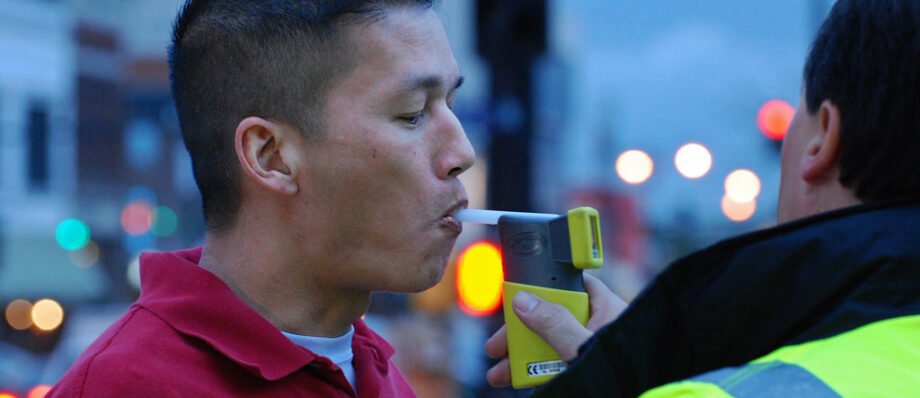Understanding Your Rights When Asked to Take a Breathalyzer
Imagine you’re driving home after a night out, and suddenly, red and blue lights flash behind you. A police officer pulls you over and asks you to take a breathalyzer test. You hesitate—do you have the right to refuse? What happens if you do?
Knowing your legal rights in this situation is crucial, as refusing a breathalyzer test can have serious consequences. Let’s break it down.
What Is a Breathalyzer Test?
A breathalyzer test is a device used by law enforcement to measure the alcohol content in your breath. There are two types of breath tests:
- Preliminary Breath Test (PBT) – A handheld device used during traffic stops to establish probable cause.
- Evidentiary Breath Test (EBT) – A more accurate test administered at a police station.
The results from an evidentiary breath test are admissible in court, while a preliminary breath test is typically used as supporting evidence.
Can You Legally Refuse a Breathalyzer?
1. Implied Consent Laws
Most states have implied consent laws, meaning that by obtaining a driver’s license, you automatically agree to submit to chemical testing if suspected of DUI (driving under the influence).
- Refusing a breathalyzer in states with implied consent laws leads to automatic penalties, such as license suspension.
- In some states, refusal can be used as evidence against you in court.
2. Roadside vs. Station Breath Tests
- You can refuse a preliminary breath test (PBT) at a traffic stop in some states, but this may lead to further testing at a police station.
- You cannot refuse an evidentiary breath test (EBT) without facing serious legal repercussions.
3. State-Specific Laws
Each state has different consequences for refusing a breathalyzer. For example:
- California: A first-time refusal can result in a one-year license suspension.
- Texas: Refusing a test can lead to a 180-day suspension.
- Florida: A refusal can result in an automatic suspension and additional fines.
What Happens If You Refuse a Breathalyzer?
1. License Suspension
- Most states immediately suspend your driver’s license for refusing a breathalyzer.
- Suspensions typically range from six months to a year.
2. Possible Arrest
- Refusing a breathalyzer doesn’t mean you’ll avoid arrest—officers may detain you based on other evidence (slurred speech, erratic driving, etc.).
3. Enhanced Penalties
- Some states impose harsher penalties for refusing a breathalyzer than for a first-time DUI conviction.
- You could face higher fines, mandatory education programs, or even jail time.
4. Ignition Interlock Requirement
- Some states require ignition interlock devices for those who refuse breath tests, even if they are not convicted of DUI.
When Should You Refuse a Breathalyzer?
While refusing a breathalyzer test might seem like a way to avoid a DUI charge, it’s usually not in your best interest. However, there are certain situations where some legal experts suggest refusal might be strategic:
- If you know you are far over the legal limit, refusal might limit the evidence against you (but at the cost of severe penalties).
- If you are in a state where refusal penalties are less severe than a DUI conviction, it could be a calculated risk.
However, in most cases, refusal leads to complications rather than benefits.
Common Myths About Refusing a Breathalyzer
1. “If I refuse, they have no proof I was drunk.”
False. Officers can use other evidence, such as field sobriety tests, witness statements, and dashcam footage, to convict you.
2. “I can just request a blood test instead.”
Not always. Some states allow you to request a different type of test, but refusing a breathalyzer still triggers implied consent penalties.
3. “It’s better to refuse than fail the test.”
Not necessarily. Refusing can lead to harsher penalties than failing, especially for first-time offenders.
FAQs About Refusing a Breathalyzer
1. Will I go to jail if I refuse a breathalyzer?
Possibly. While refusal alone isn’t always grounds for arrest, if an officer has other evidence of impairment, you could be taken into custody.
2. Can I refuse a breathalyzer if I’m not driving?
Yes. If you’re not in control of a vehicle, an officer has no grounds to request a test.
3. What if I have a medical condition that affects breath tests?
Certain medical conditions (like GERD or diabetes) can impact breathalyzer results. Inform the officer and request an alternative test if available.
4. Can I fight a license suspension after refusing?
Yes. Many states allow you to challenge a suspension through an administrative hearing, but time limits apply (often within 10–30 days of the refusal).
5. Can refusing a breathalyzer be used against me in court?
Yes. Prosecutors can argue that refusal indicates guilt, which can sway a jury.
Final Thoughts
Refusing a breathalyzer test isn’t a guaranteed way to avoid DUI charges—and in many cases, it results in harsher penalties. The best way to protect yourself is to understand your state’s laws and consult an attorney if you’re facing DUI-related charges. If you frequently consume alcohol and drive, consider alternative transportation options to avoid legal trouble altogether.
For more legal information, check out FindLaw’s DUI Laws or NHTSA’s Guide to Impaired Driving.
Get the Compensation You Deserve After Your Accident
If you’ve been injured in a car crash that wasn’t your fault, don’t settle for silence or confusion. Lawayer.com connects you with› experienced attorneys who can fight for your rights and help you recover what you’re owed. Time matters—take the first step now



